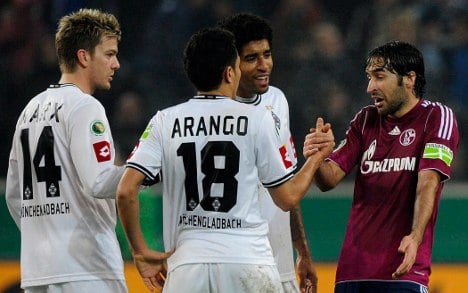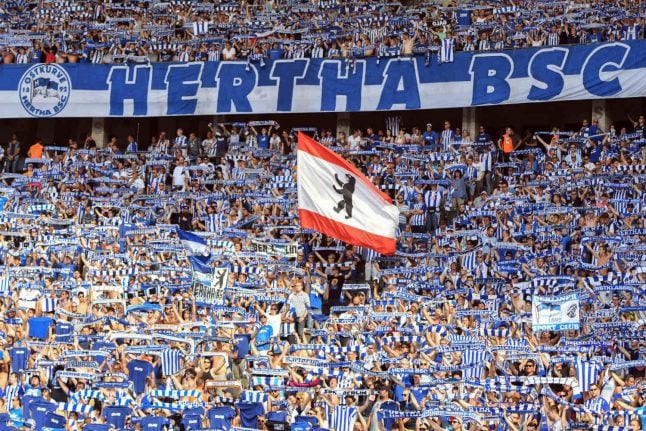The 22-year-old, who had been an injury doubt prior to the match, was in superb form as Mönchenglabach – who are fourth in the Bundesliga – continued their stunning start to the season just months after a goal by Reus saved them from the drop in a play-off.
Schalke hardly helped themselves by finishing the match with nine men as Dutch star Klaas-Jan Huntelaar and Jermaine Jones were sent off.
Earlier fourth division side Holstein Kiel created the upset of the round-of-16 when they beat Bundesliga outfit Mainz 2-0.
An own goal by Mainz’s Nigerian star Anthony Ujah in the sixth minute and a 64th minute strike by Steve Müller saw Holstein into the quarter-finals and outstrip second division Greuther Furth’s 1-0 win over another Bundesliga side Nuremberg on Tuesday.
Elsewhere on Wednesday Hertha Berlin shrugged off the ugly sacking of Markus Babbel on Sunday with a 3-1 victory over relegation-threatened rivals Kaiserslautern.
On Tuesday both Bayern Munich and Borussia Dortmund reached the quarter-finals but only after scraping past lower-league opposition.
Bayern needed an injury-time strike from Dutch winger Arjen Robben to win 2-1 at second division Bochum, while champions Dortmund won 5-4 on penalties at Fortuna Düsseldorf, also of the second tier.
Bochum midfielder Giovanni Federico had given the hosts a shock lead against Bayern on 26 minutes but Toni Kroos levelled seven minutes into the second period after linking well with Mario Gomez.
Jupp Heynckes’s Bavarians had to scrap against an enthusiastic young Bochum side but Franck Ribery finally unlocked the door in setting up Robben’s 91st-minute winner.
Dortmund were reduced to ten men following the first-half sending-off of Patrick Owomoyela, and were pushed all the way by their hosts, who are top of the second division.
However, Dortmund goalkeeper Roman Weidenfeller saved from Thomas Broeker in the shoot-out, and Ivan Perisic went on to score the decisive kick to take the Bundesliga champions through.
AFP/bk





 Please whitelist us to continue reading.
Please whitelist us to continue reading.
Member comments